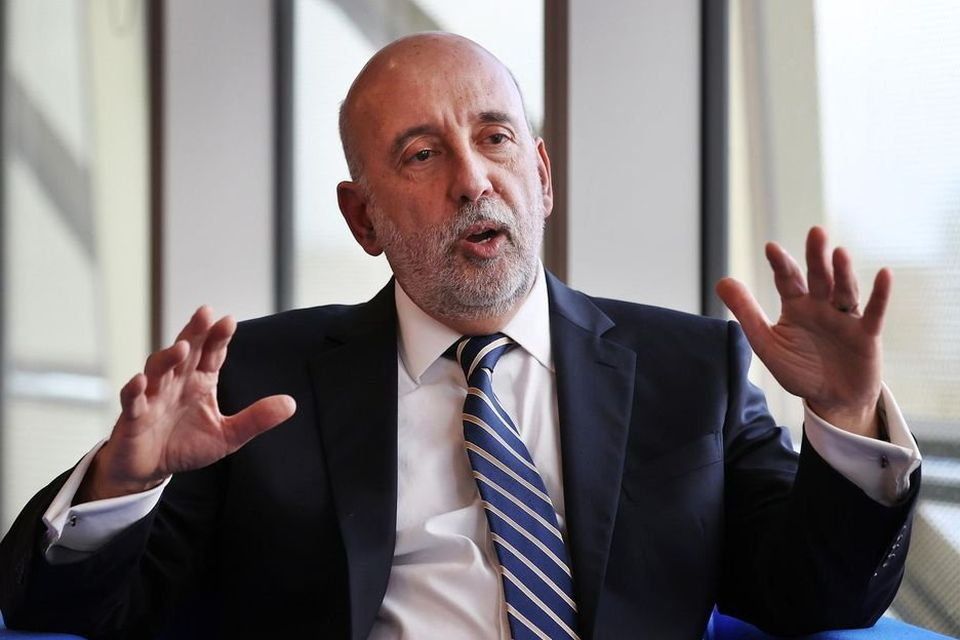Business
IMF Raises Growth Forecasts Amid US Tariff Concerns

The International Monetary Fund (IMF) has revised its growth forecasts for both the United States and the global economy, despite the ongoing impact of tariffs imposed by former President Donald Trump. The IMF announced on October 3, 2023, that while the tariffs had created disruptions, their actual impact on growth has been less severe than initially anticipated.
According to the IMF’s latest report, the US economy is projected to expand by 2.1 percent in 2024 and 2.0 percent in 2025. These figures represent a slight increase from previous estimates, which had forecast a growth of 1.9 percent for 2025. Global growth is expected to reach 3.2 percent in 2023, tapering to 3.1 percent by 2026.
Impact of Tariffs on the Irish Economy
In a separate statement, Gabriel Makhlouf, Governor of the Central Bank of Ireland, warned that the US tariffs, set at 15 percent, are likely to adversely affect Irish exports to the US and slow down the country’s growth. Speaking at the Atlantic Council in Washington, D.C., during what is known as “IMF week,” Makhlouf noted that the new trade agreement between the EU and the US, while not fully implemented, is expected to moderate Irish growth in the medium to long term.
He projected that the current tariffs could reduce Irish economic output by approximately 1 percent compared to a no-tariff scenario over the long term. Despite this, Makhlouf emphasized that the effective tariff rates now in place are not prohibitive to trade with the US.
The Central Bank of Ireland has forecast a significant slowdown in growth, projecting a decline from 2.9 percent this year to just over 2 percent in the coming years.
AI Investments Offset Trade Disruptions
The IMF highlighted that the overall economic performance has exceeded expectations, largely due to a surge in investment in artificial intelligence (AI). The organization noted that this boom, which includes extensive funding for data centres and microchip manufacturing, has helped mitigate some of the negative impacts of the tariffs.
IMF Chief Economist Pierre-Olivier Gourinchas remarked that while tariffs have created ongoing uncertainty, the actual “tariff shock” has been less damaging than initially feared, thanks in part to the absence of retaliatory measures from many countries. This has allowed the trading system to remain open and has encouraged private sector agility, including front-loading imports and re-routing supply chains.
Despite these positive developments, Gourinchas cautioned about potential risks associated with the rapid growth in AI investments, drawing parallels to the dot-com boom of the late 1990s. He warned that while the current tech investment surge is promising, it also carries the risk of a future bust.
The IMF’s revisions to its growth forecasts reflect a complex interplay of factors, demonstrating that while challenges remain, there are also opportunities for resilience and expansion in both the US and global economies.
-

 Top Stories3 months ago
Top Stories3 months agoTributes Surge for 9-Year-Old Leon Briody After Cancer Battle
-

 Entertainment4 months ago
Entertainment4 months agoAimee Osbourne Joins Family for Emotional Tribute to Ozzy
-

 Politics4 months ago
Politics4 months agoDanny Healy-Rae Considers Complaint After Altercation with Garda
-

 Top Stories4 months ago
Top Stories4 months agoIreland Enjoys Summer Heat as Hurricane Erin Approaches Atlantic
-

 World5 months ago
World5 months agoHawaii Commemorates 80 Years Since Hiroshima Bombing with Ceremony
-

 Top Stories3 months ago
Top Stories3 months agoNewcastle West Woman Patricia Foley Found Safe After Urgent Search
-

 Top Stories5 months ago
Top Stories5 months agoFianna Fáil TDs Urgently Consider Maire Geoghegan-Quinn for Presidency
-

 World5 months ago
World5 months agoCouple Convicted of Murdering Two-Year-Old Grandson in Wales
-

 World5 months ago
World5 months agoGaza Aid Distribution Tragedy: 20 Killed Amid Ongoing Violence
-

 World5 months ago
World5 months agoAristocrat Constance Marten and Partner Convicted of Infant Murder
-

 Top Stories4 months ago
Top Stories4 months agoClimbing Errigal: A Must-Do Summer Adventure in Donegal
-

 Top Stories4 months ago
Top Stories4 months agoHike Donegal’s Errigal Mountain NOW for Unforgettable Summer Views









